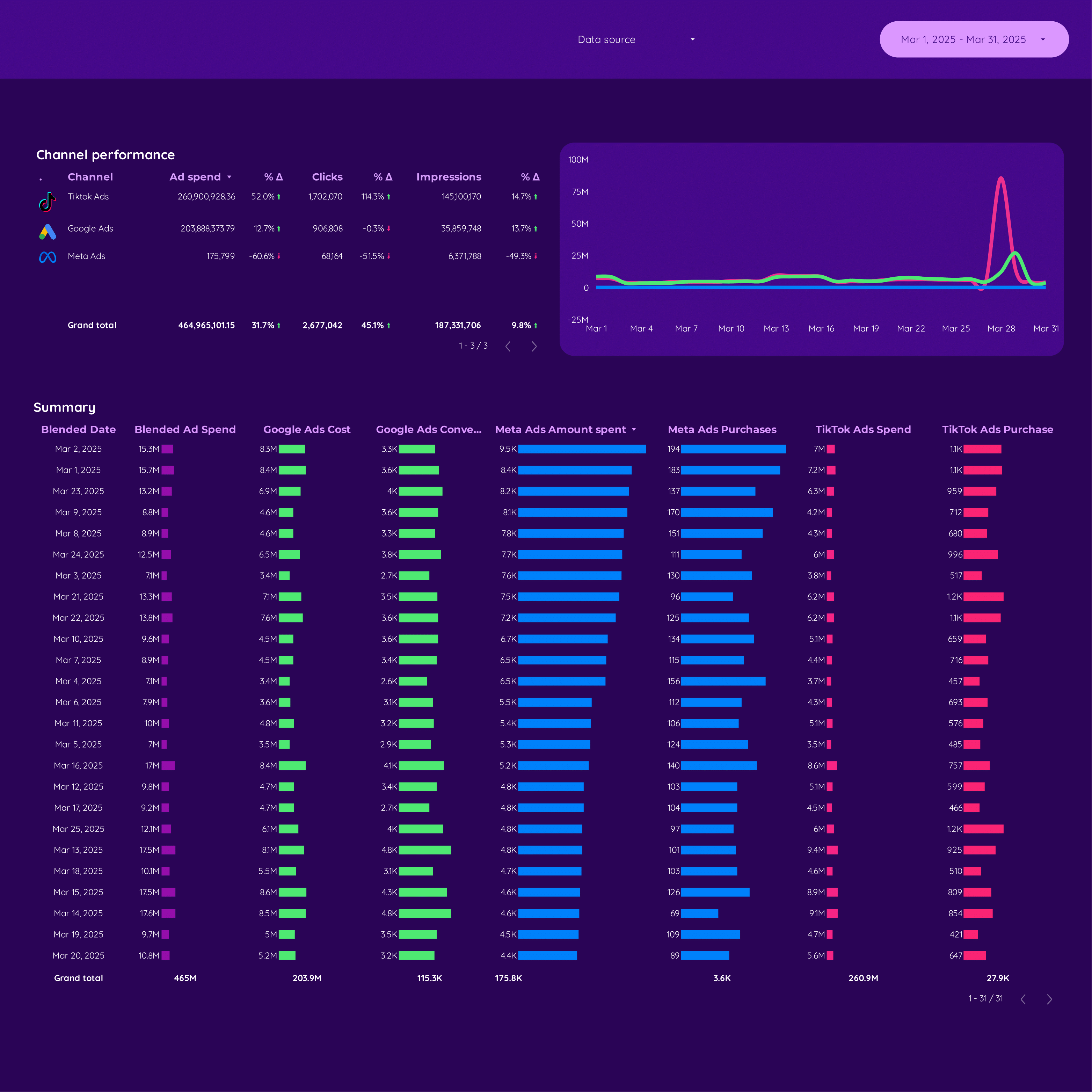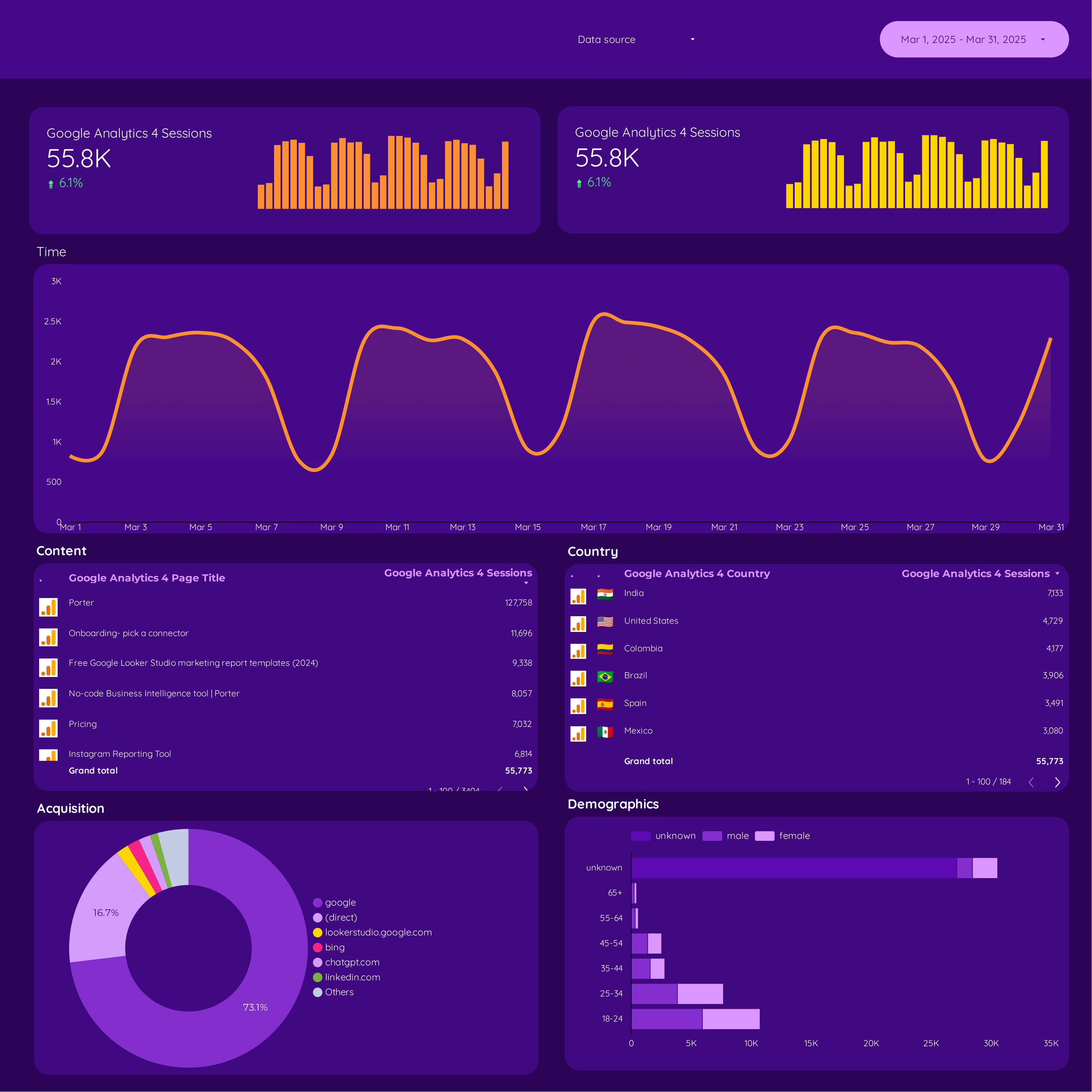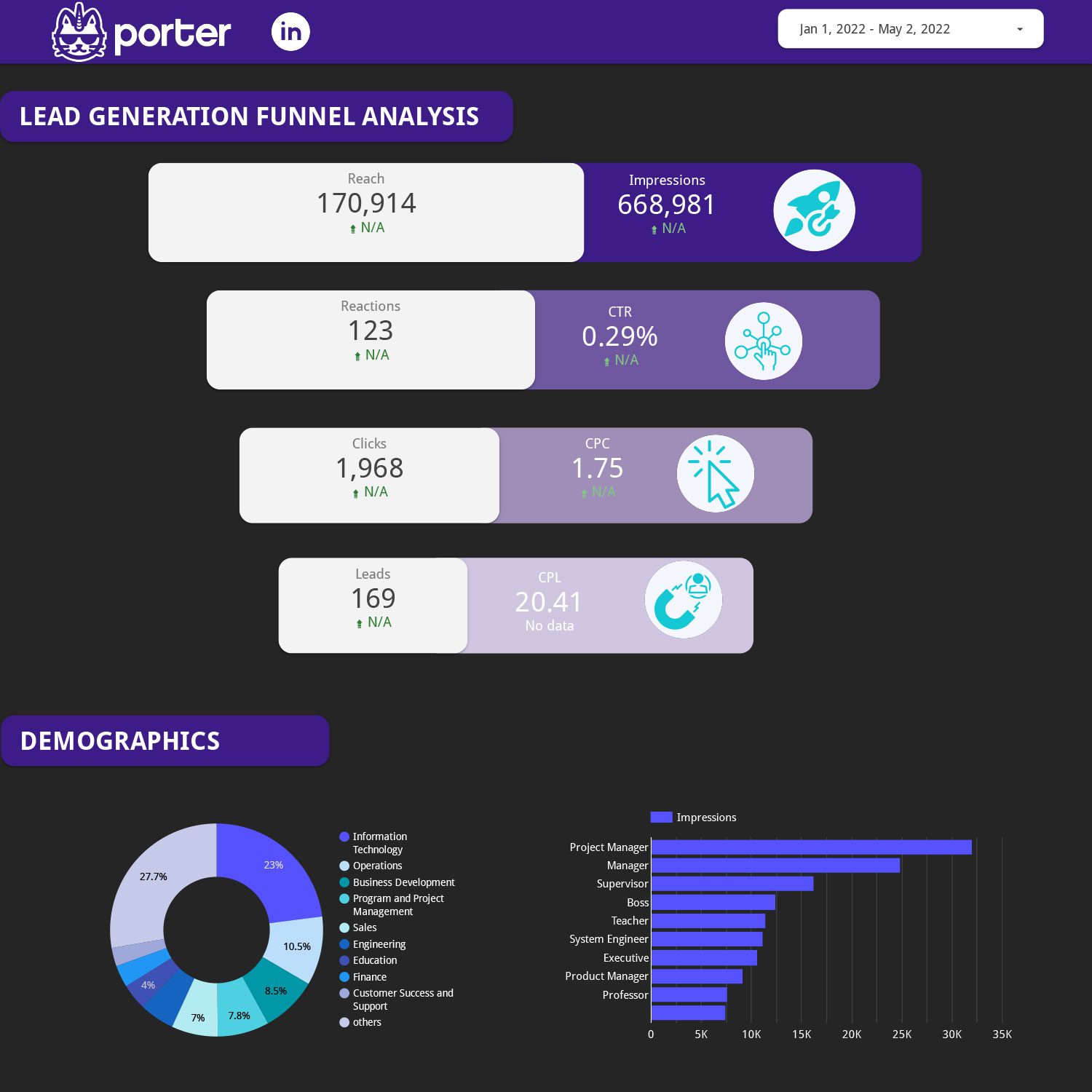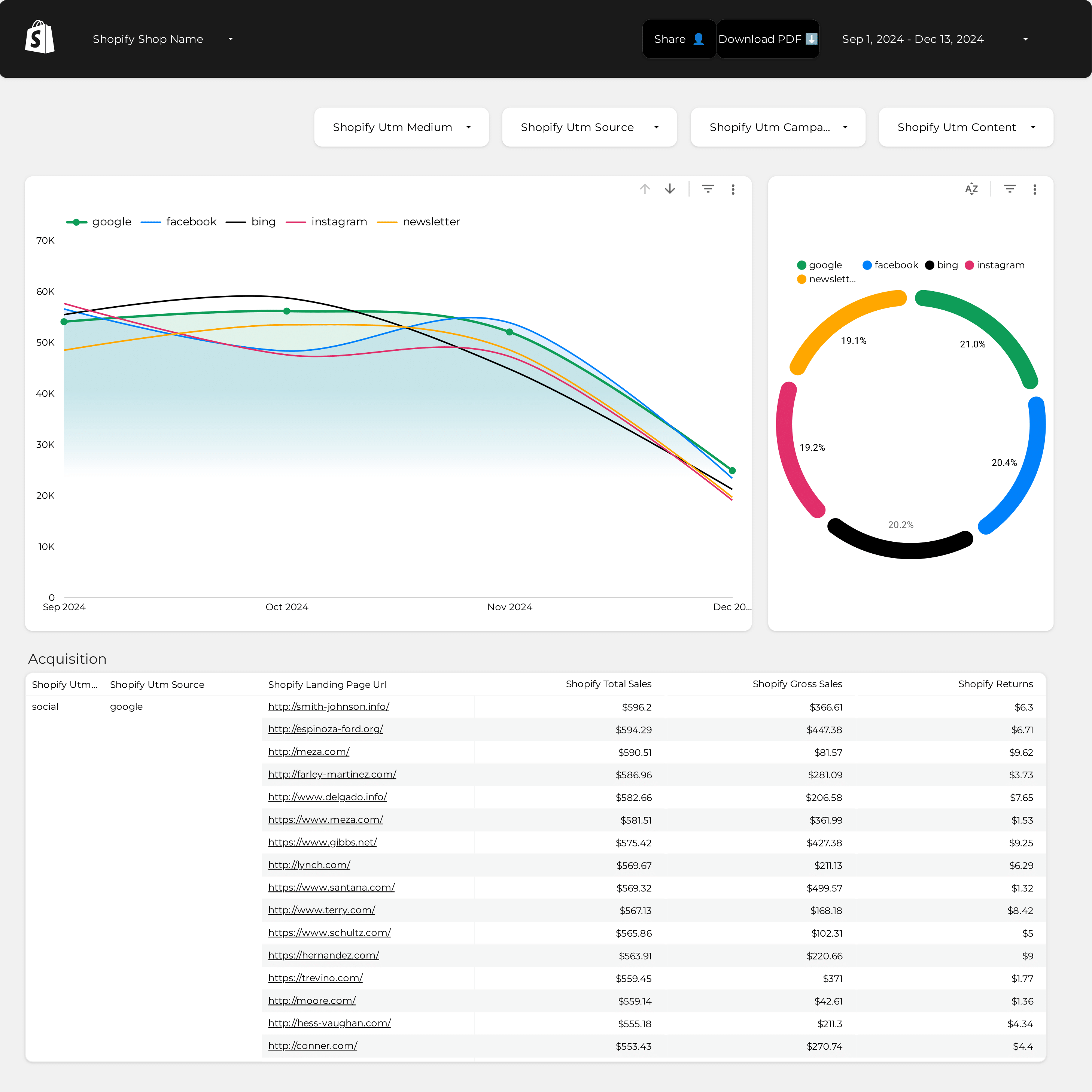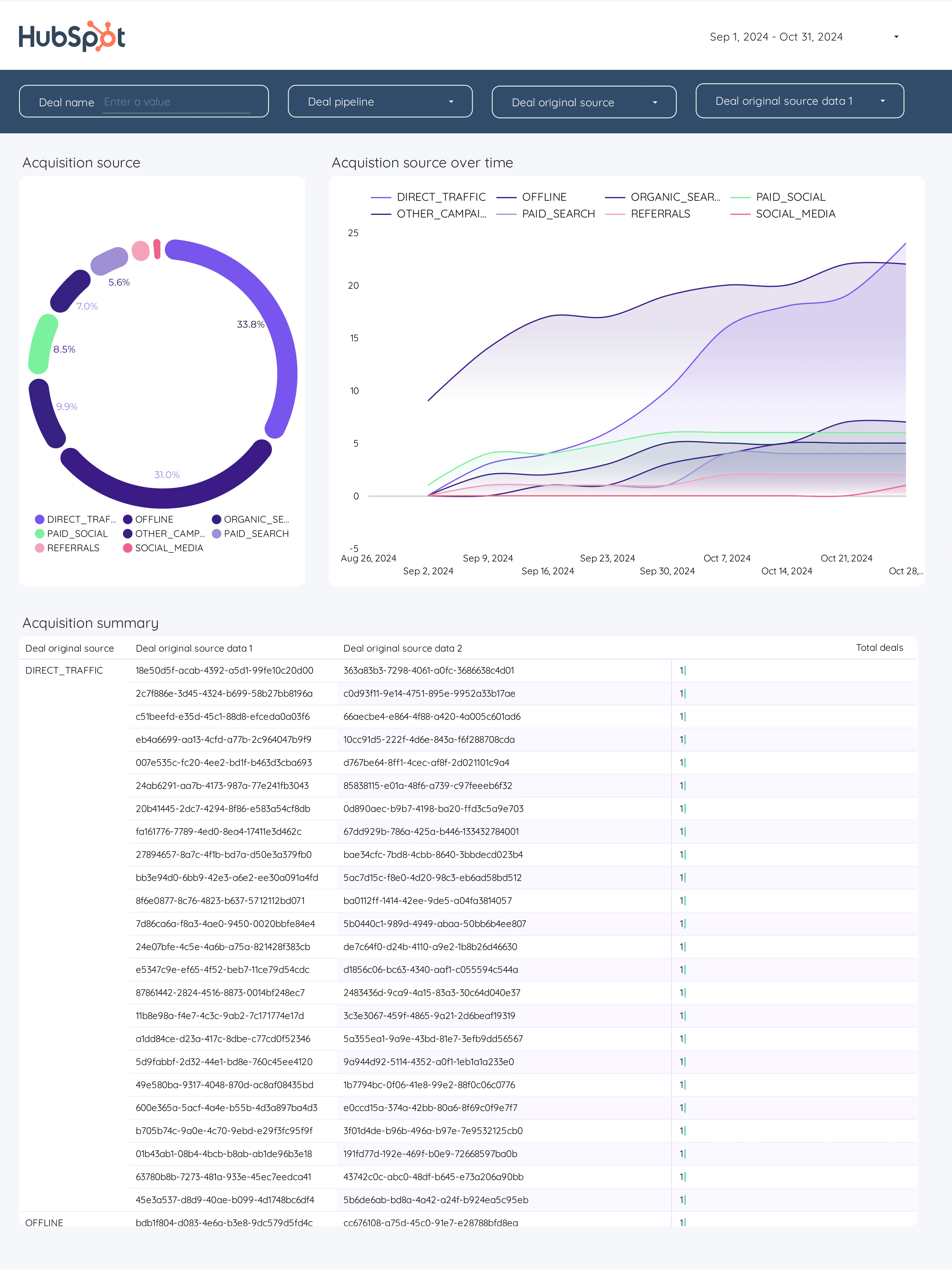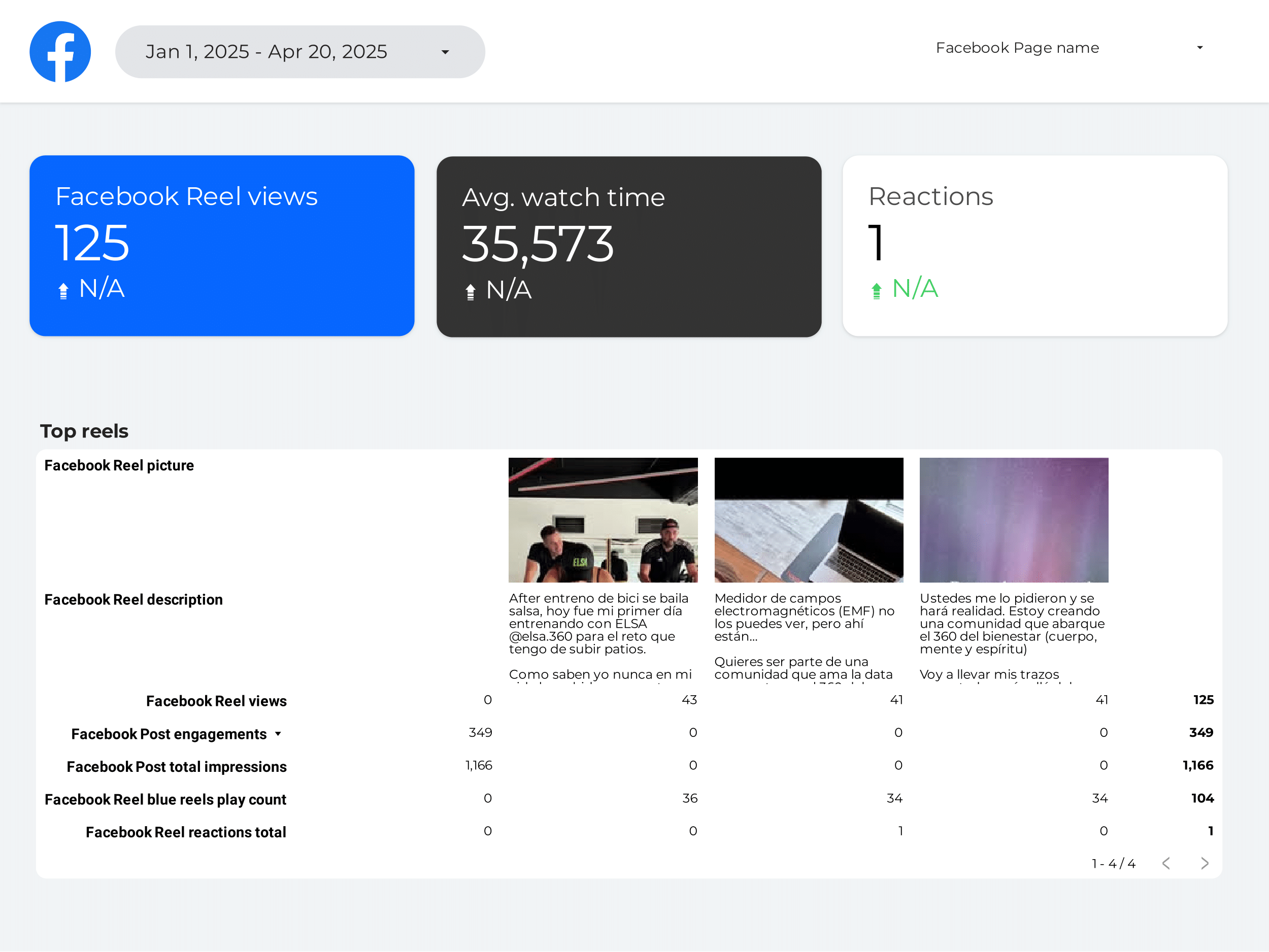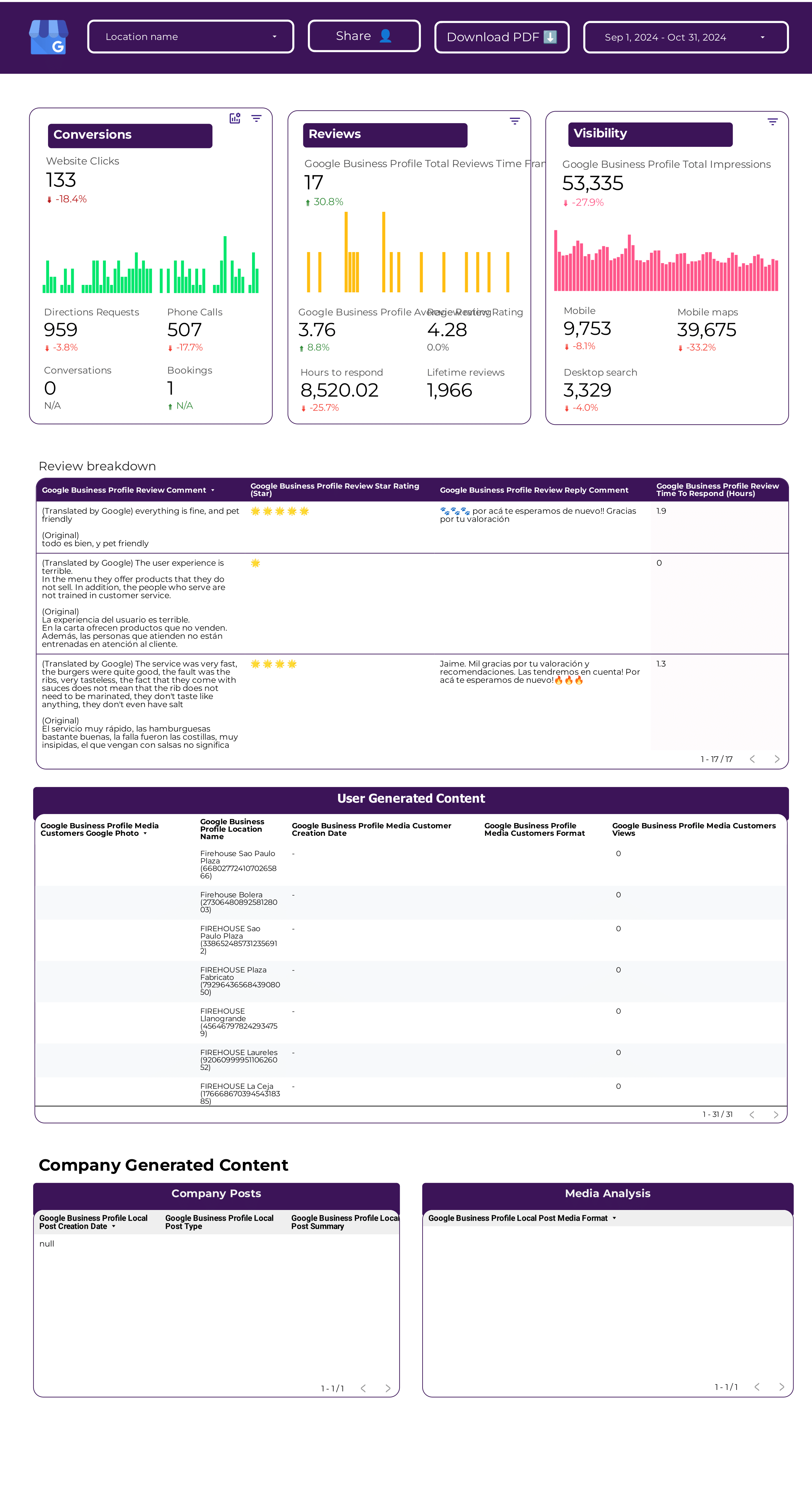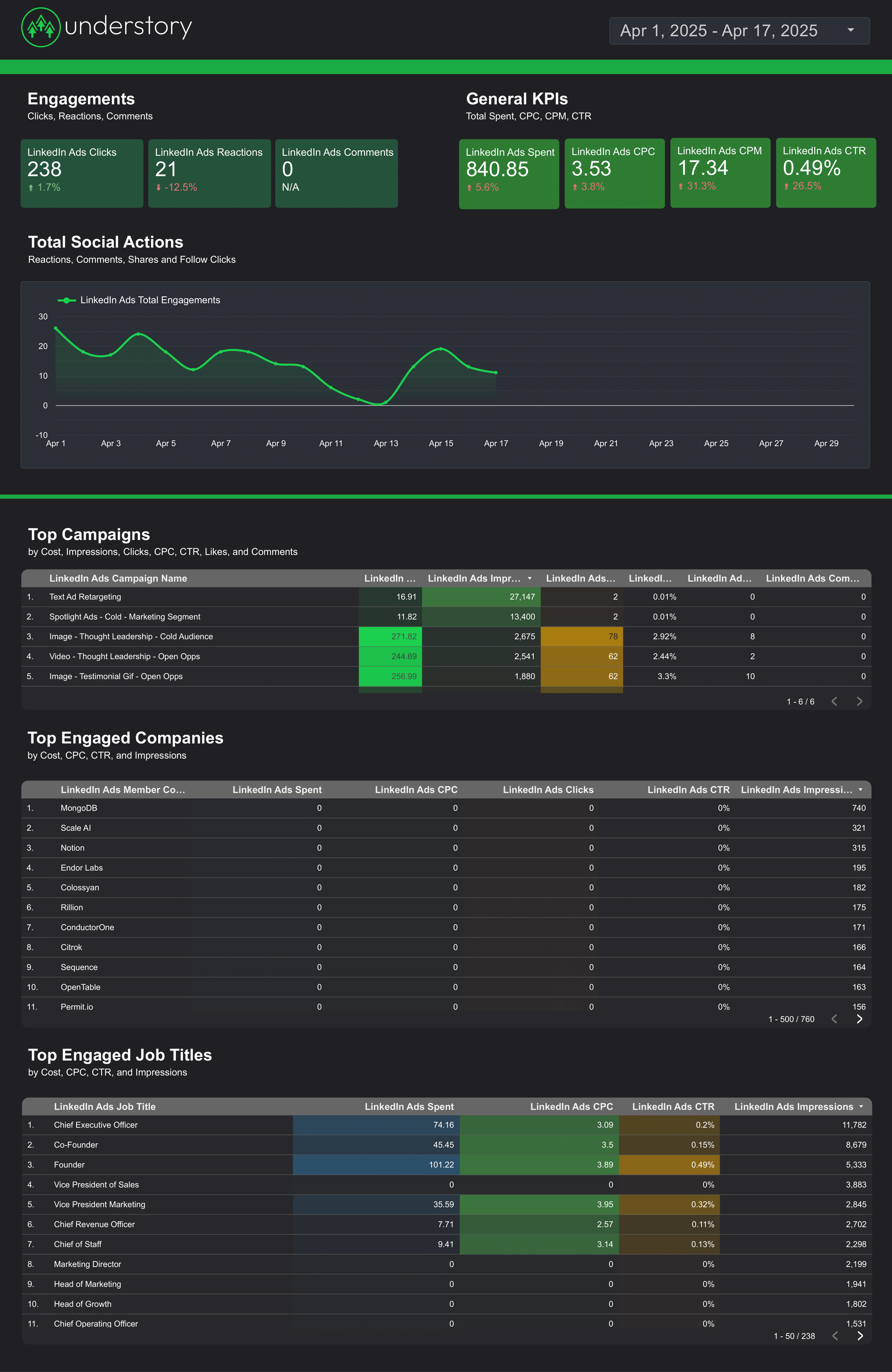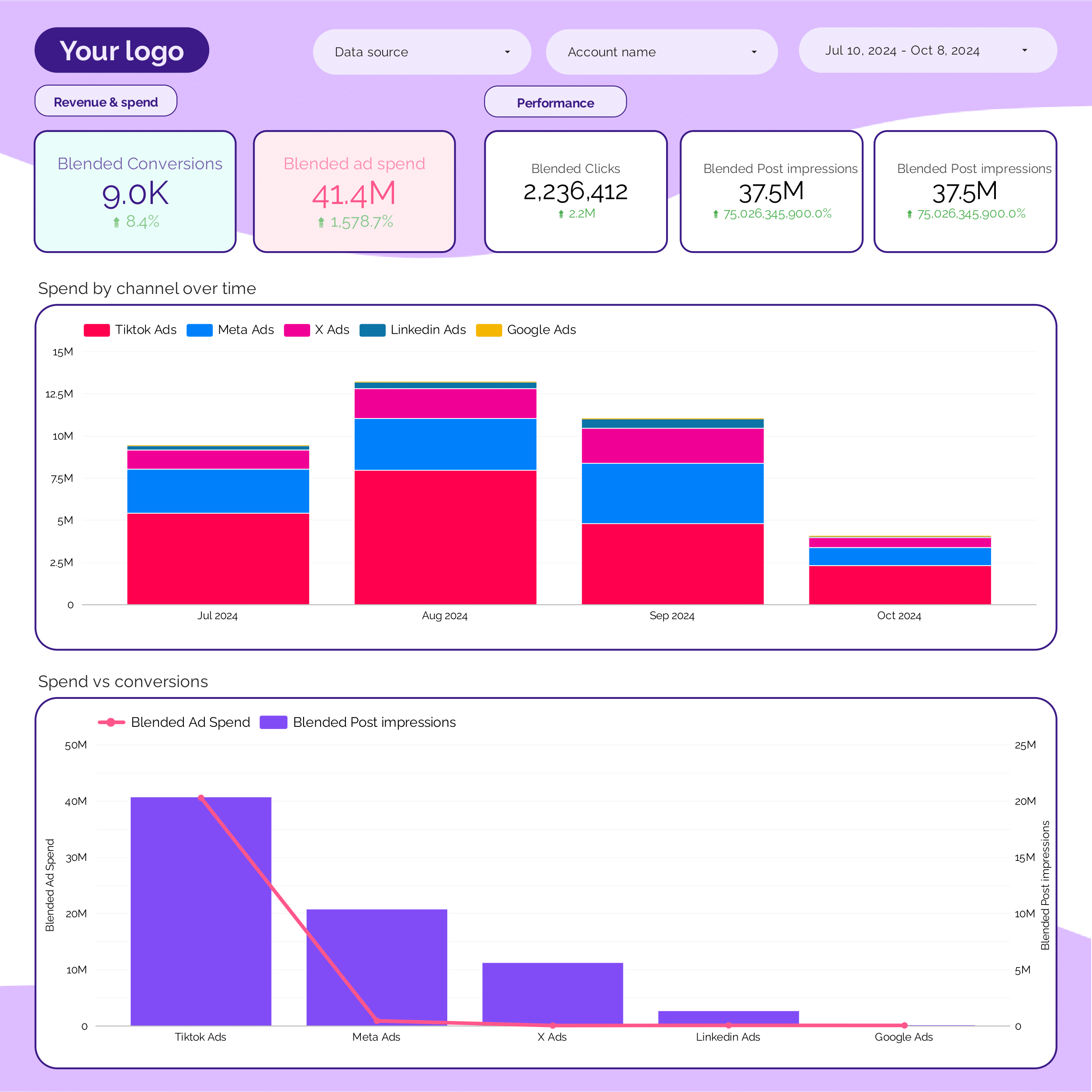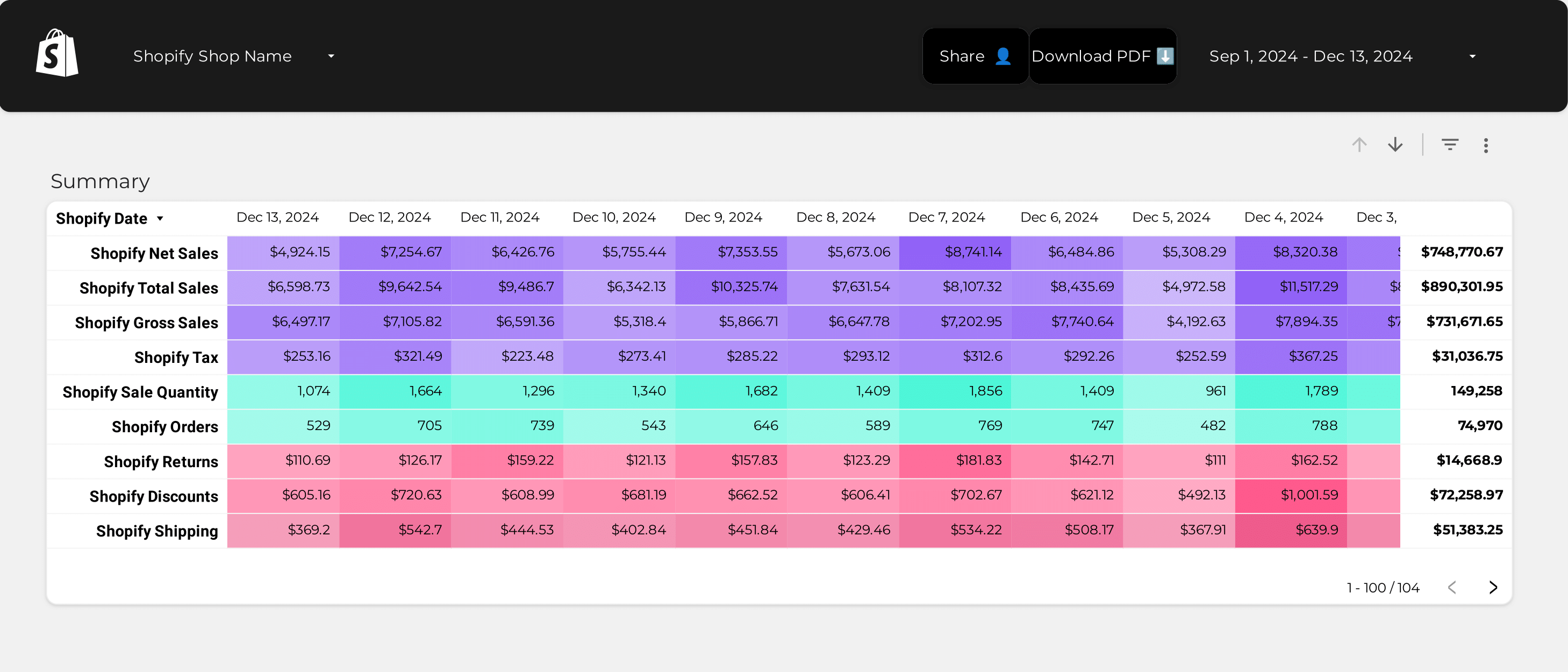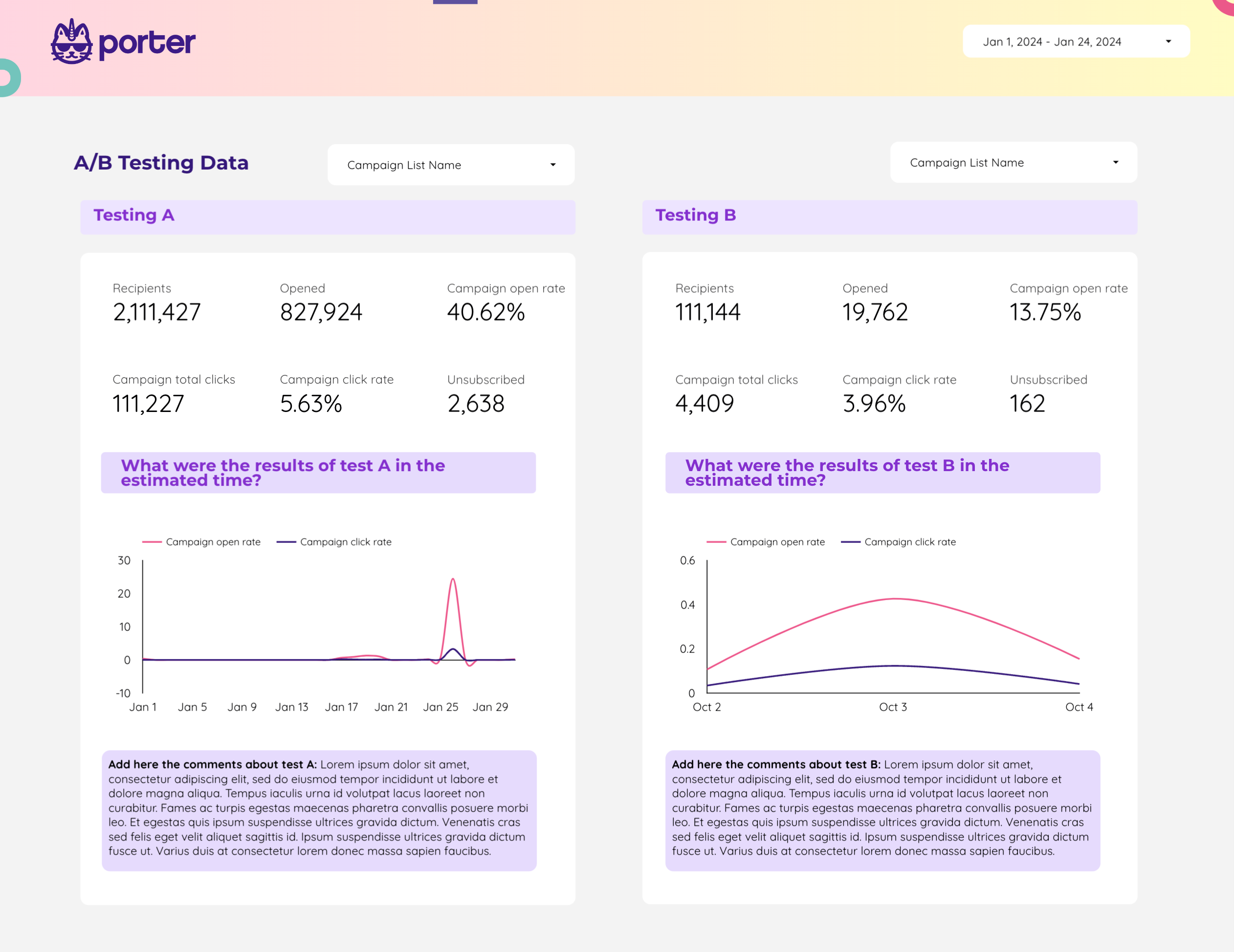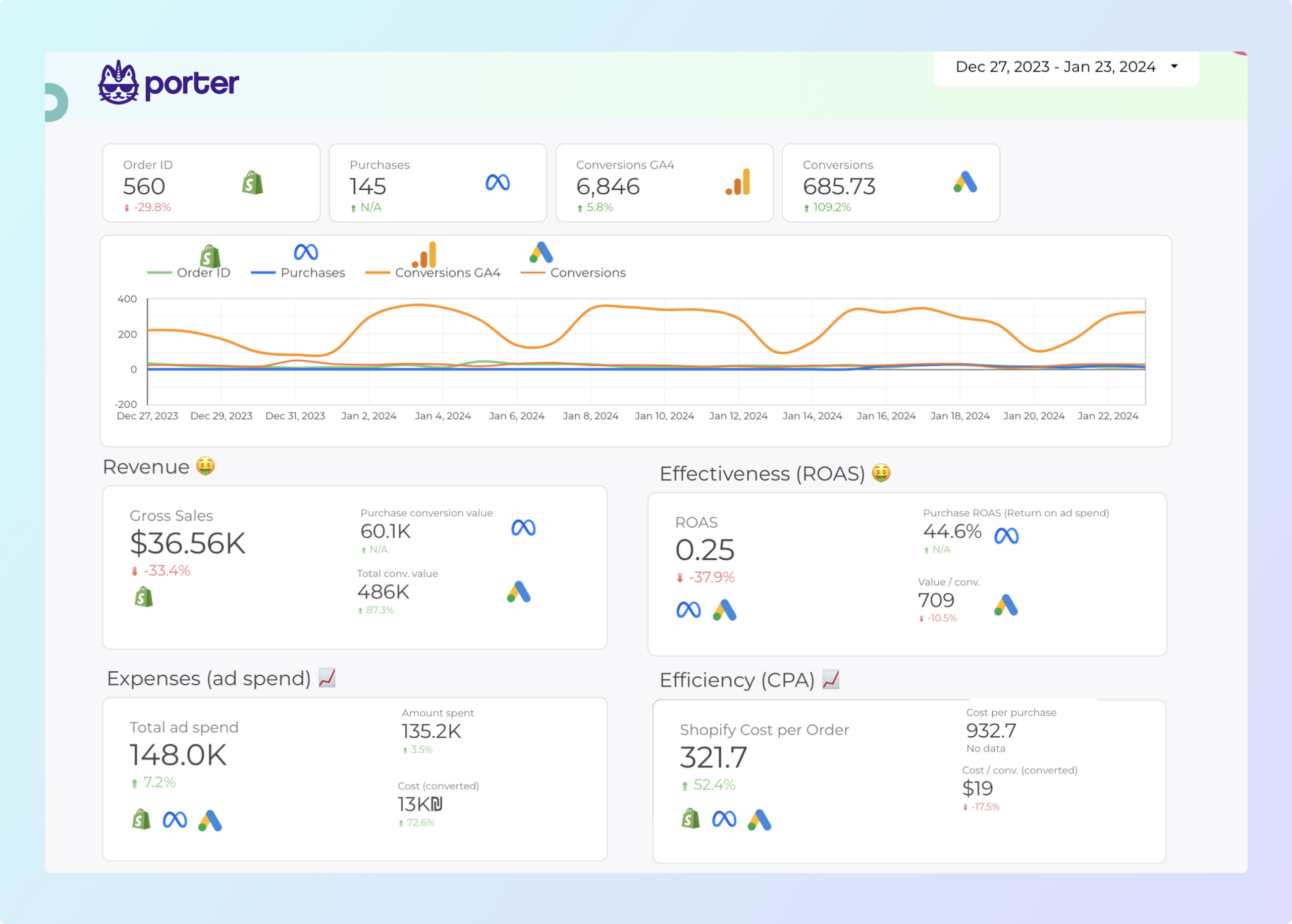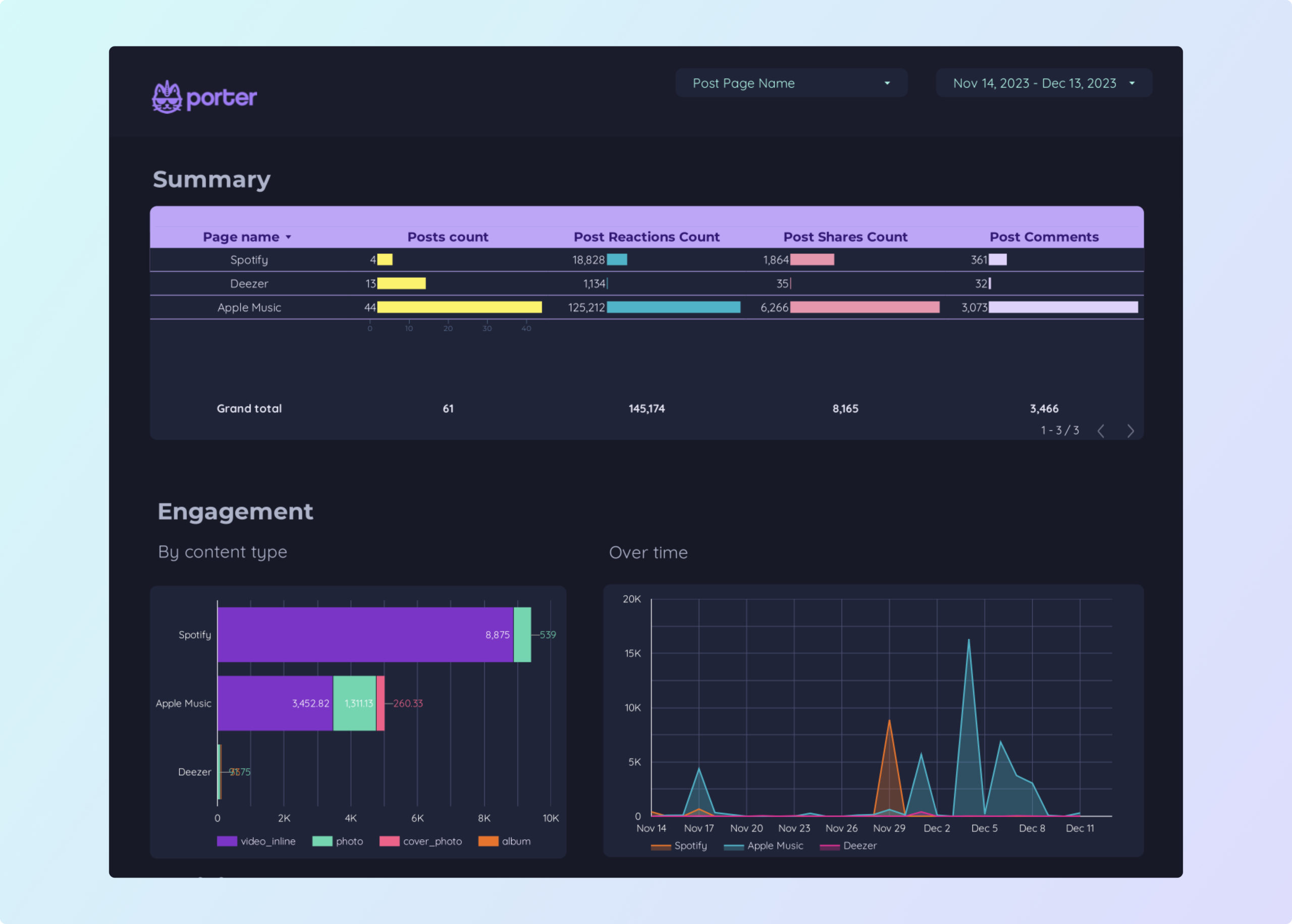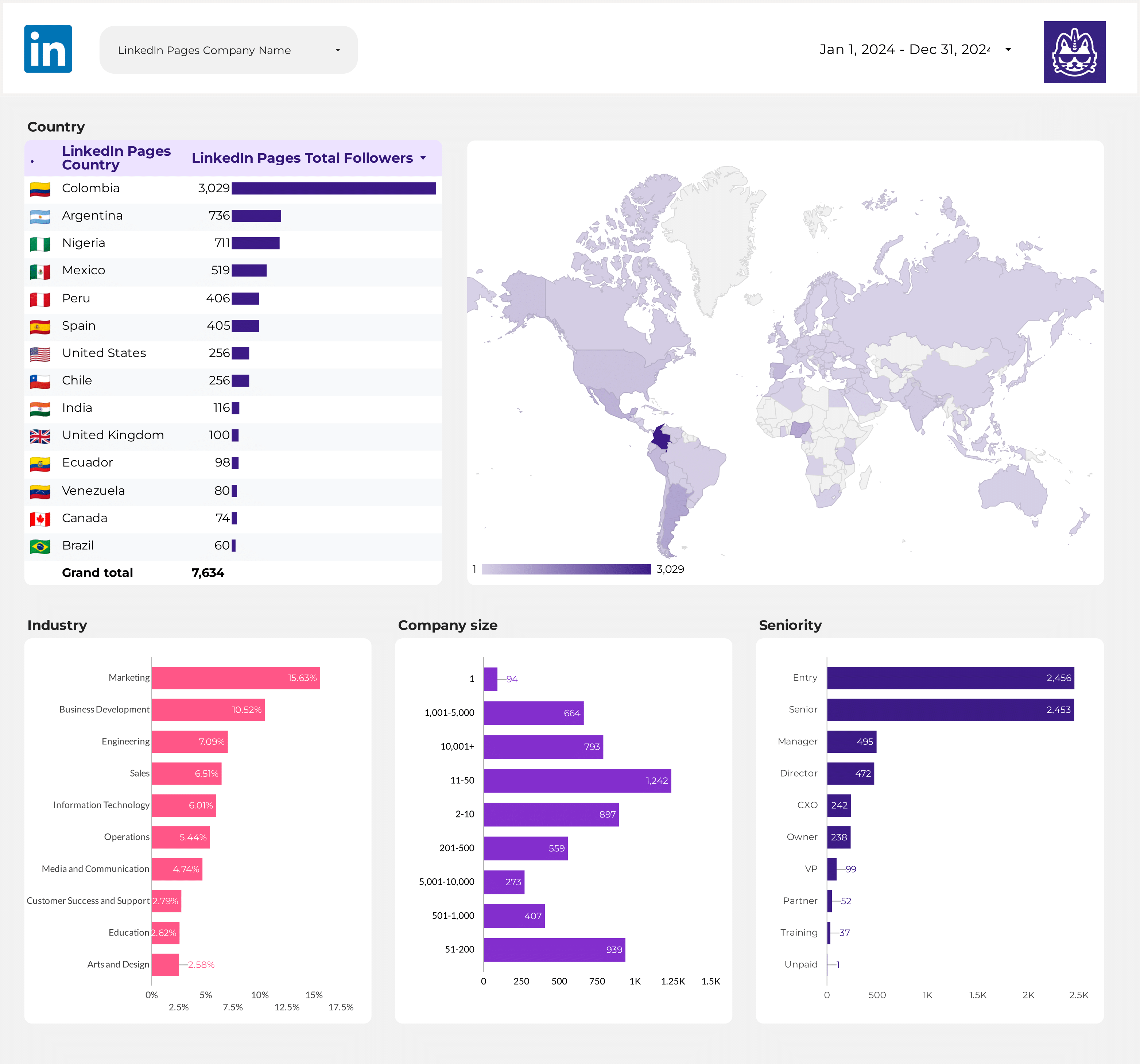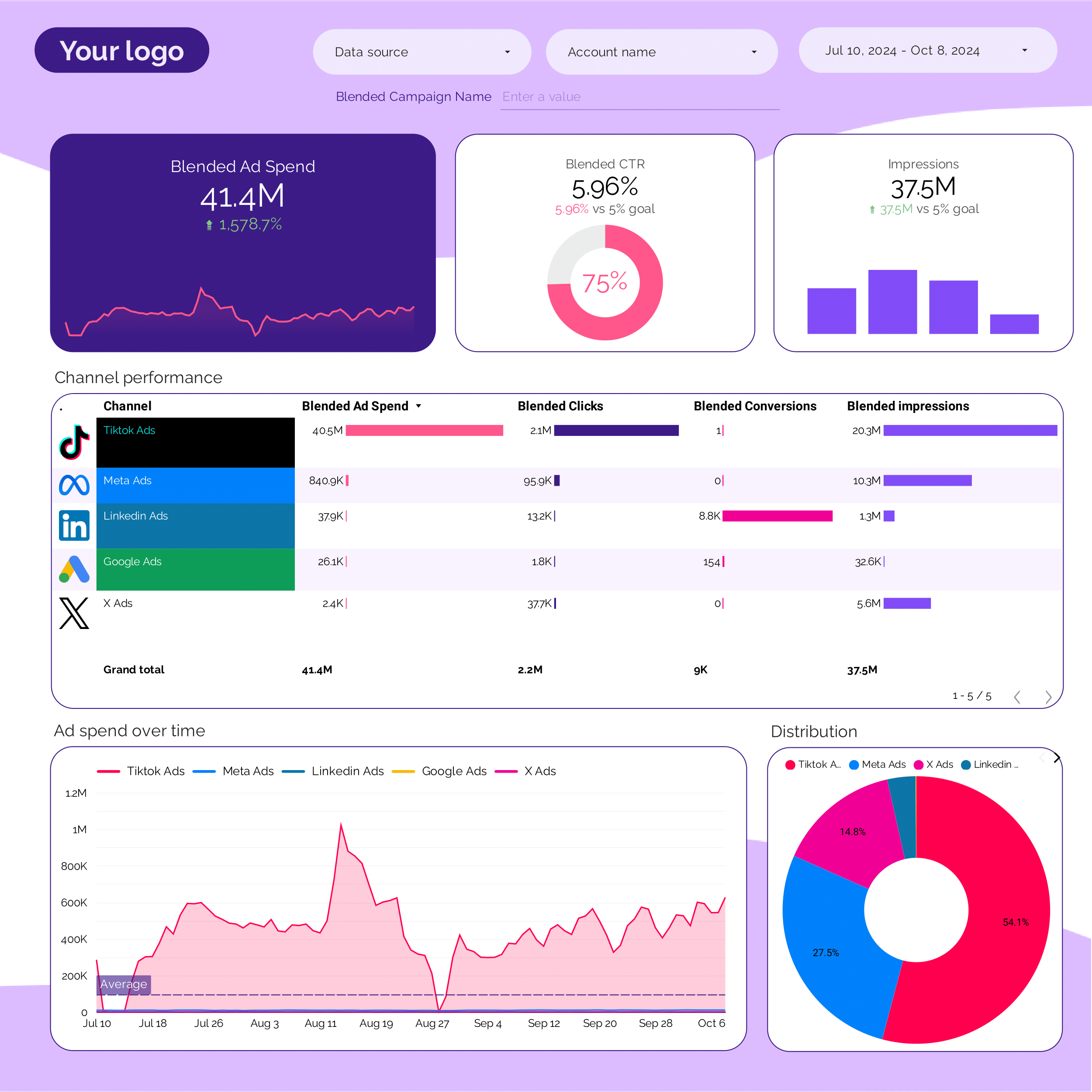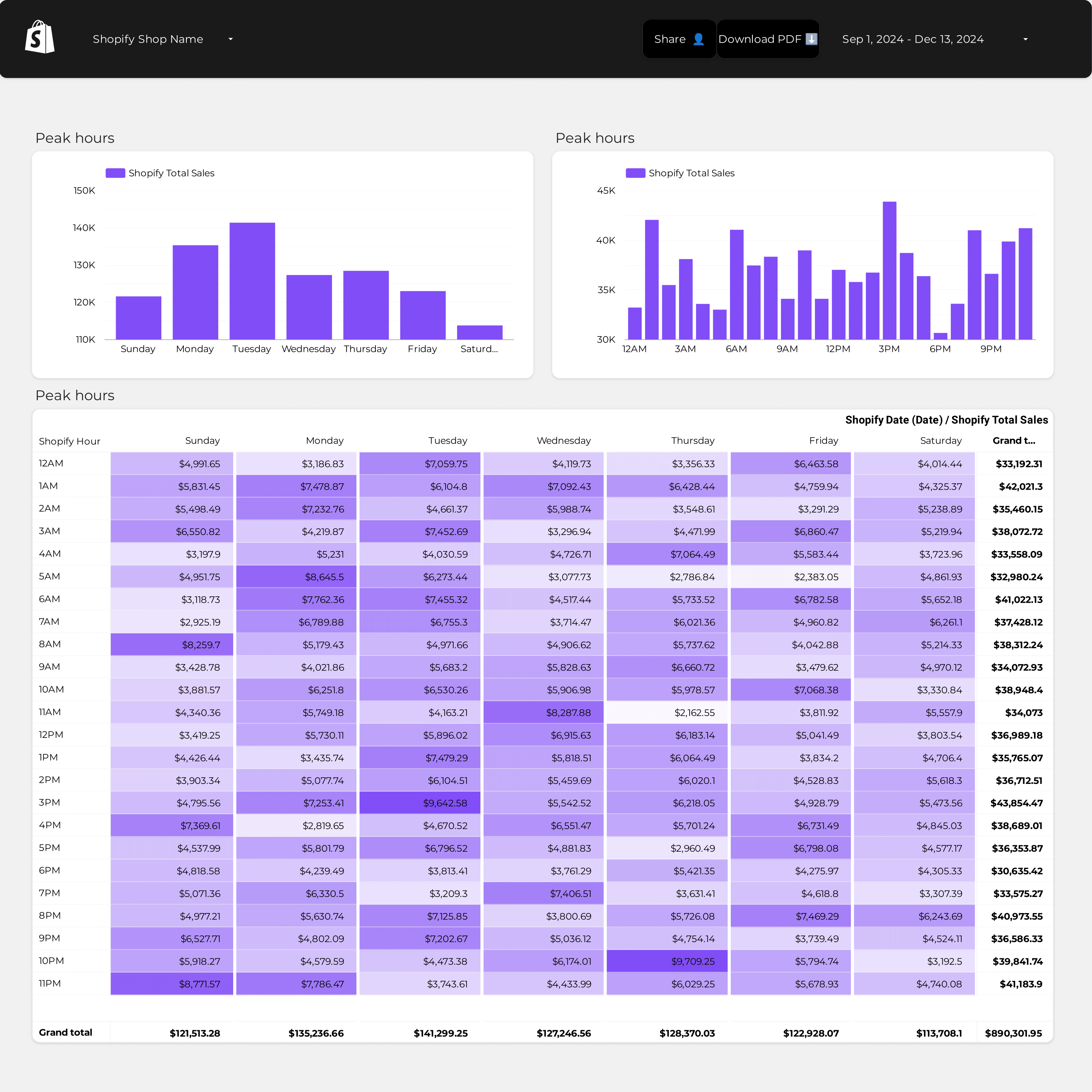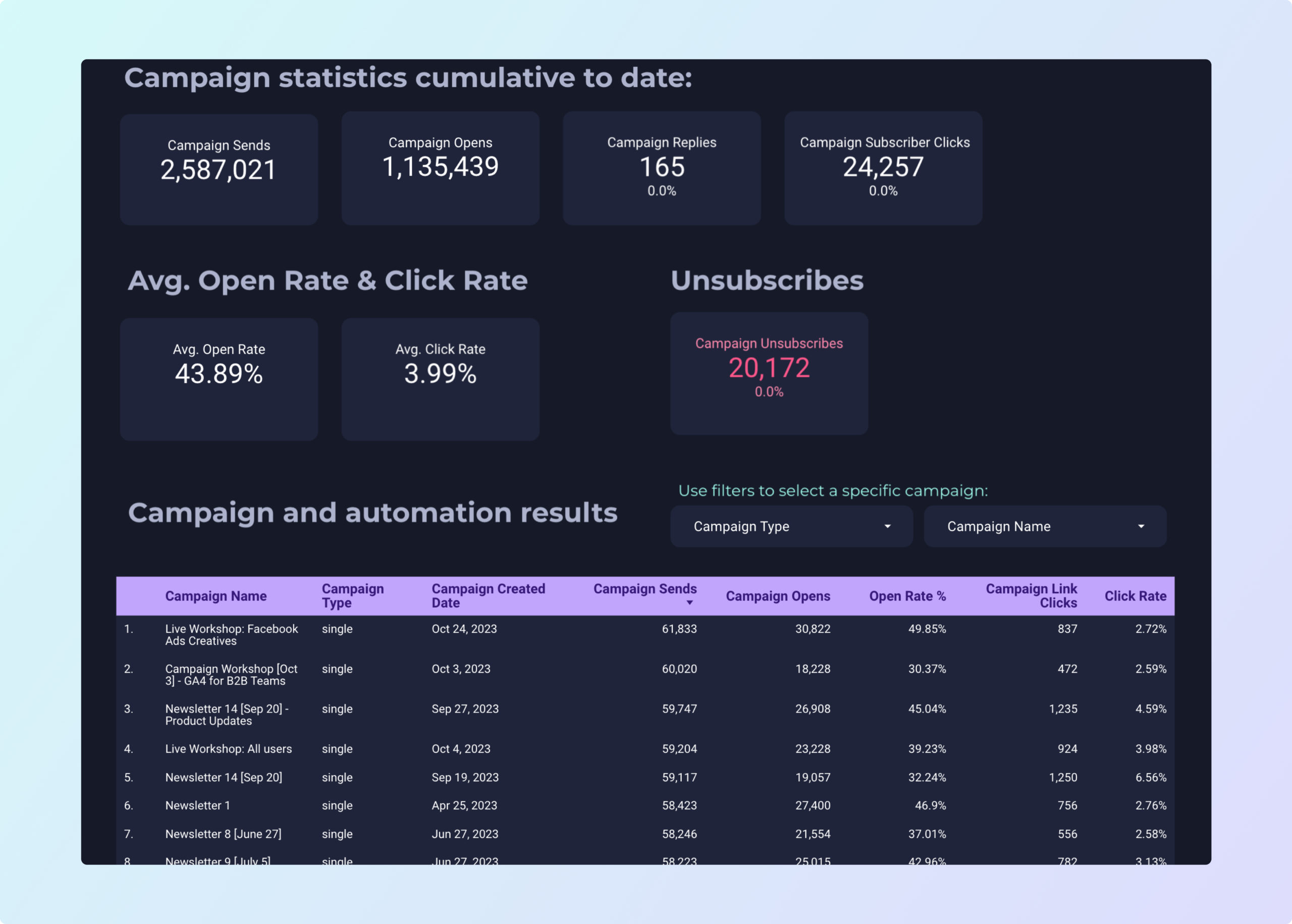What is a quarterly report?
A quarterly report is a document that consolidates data from multiple sources (e.g., financial systems, CRM, project management tools) to track and display key performance indicators (KPIs) (e.g., revenue growth, customer retention, project milestones), enabling teams and executives to monitor quarterly performance and create presentations for stakeholders.
Quarterly reports are typically created using flexible tools like Google Looker Studio, Power BI, Google Sheets, or platform-specific solutions to enable high customization and integration of multiple data sources.
What to include in a quarterly report?
An actionable quarterly report balances context and specificity based on the audience (executives, managers, and analysts) and their use cases.
Executive quarterly reports
Executive reports for CFOs, CEOs, and board members show the organization's bottom-line impact. Reviewed quarterly, they include:
- Financial performance analysis: revenue, profit margins, and cost analysis.
- Customer metrics: retention rates, customer satisfaction scores, and lifetime value.
- Project progress: milestones achieved, budget adherence, and resource allocation.
- Add text for additional context to translate metrics for non-technical audiences. Present in slide decks and simplified Looker Studio reports.
Managerial quarterly reports
Manager reports have cross-departmental views with drill-downs to see performance by team, project, region, and quarter. They help align teams, define strategies, and include:
- Cross-departmental reporting: overall performance, project status, and resource utilization.
- Goal tracking: compare current performance vs objectives.
- Audits for prioritization and spotting issues
- Competitive analysis for market positioning and strategy mapping.
- Topic, trend, and market research
Operational Quarterly Reports
Operational reports for analysts and team leads have granular, customizable KPIs to solve technical issues. Monitored quarterly, they cover:
- Financial metrics: budget pacing, expenditure tracking, cost efficiency.
- Project metrics: task completion rates, timeline adherence, resource allocation.
- Customer metrics: feedback, engagement, and satisfaction rates.
- Operational metrics: process efficiency, error rates, and productivity.
Operational quarterly reports are highly customized, built in flexible tools like Google Sheets or Looker Studio to enable data cleaning, blending, annotations, and integrating multiple sources.
How to build a quarterly report?
To build a quarterly report, connect your data sources, choose a template on Looker Studio or Sheets, build your queries by selecting metrics and dimensions, choose charts to visualize your data, customize the report, design and share via link, PDF or email.
Here’s the breakdown:
Connect data sources
Define and connect the data sources to bring to your report. Common sources are financial systems for revenue and cost data, CRM for customer metrics, and project management tools for project data.
To connect your data sources, go to portermetrics.com, choose the data sources to bring to your report.
You can follow these tutorials on connecting your data:
Choose a template
Choose from dozens of quarterly report templates in Google Sheets or Looker Studio, designed for use cases like financial tracking, project management, and customer analysis.
Learn to copy Looker Studio templates.
While templates are the starting point. Make them specific for your business or agency. Map your specific metrics, especially custom financial metrics, CRM data, project milestones, and all the fields and metrics that you define as "key performance indicators" and "objectives".
Depending on your reporting tool—Google Sheets or Google Looker Studio, pick any of the dozens of templates created by our team and customers to solve your quarterly reporting use cases, such as financial tracking, project management, and customer analysis.
Select metrics, dimensions, and charts
Once your report template is downloaded, you may 1)modify it or 2) create a blank page to build it from scratch. Whatever the case, setting up a query always follows these steps:
- Select the data source and the account connected to it
- Choose metrics (e.g. Revenue, expenses, customer retention, project milestones, etc.).
- Choose breakdowns to segment your data (e.g. by date, department, project, etc.)
You can follow these tutorials on adding data to your reports
Design
To make your quarterly reports truly white-label you can add logos, colors, fonts, and styling to mirror your brand.
Follow these tutorials to design your quarterly reports:
Share
Share your quarterly reports via links, PDF, schedule emails, and control permissions.
KPIs to include in a quarterly report?
Quarterly reports should include a mix of financial, operational, customer, and project metrics and KPIs to fully understand the performance of the organization towards business goals. They include:
Financial KPIs measure the financial health and performance of the organization:
- Revenue metrics: total revenue, revenue growth, average revenue per user
- Cost metrics: operational costs, cost of goods sold, overhead expenses
- Profitability metrics: gross profit, net profit, profit margins
Operational KPIs assess the efficiency and effectiveness of business processes:
- Process efficiency: cycle time, error rates
- Resource utilization: capacity utilization, resource allocation
- Project metrics: on-time delivery, project completion rates
Customer KPIs evaluate customer satisfaction and retention:
- Customer satisfaction: NPS, customer feedback scores
- Retention: customer retention rate, churn rate
- Engagement: customer engagement scores, interaction frequency
To analyze these quarterly KPIs, segment them by:
- Department: finance, operations, sales
- Project: milestones, objectives
- Customer: demographics, behavior
- Product: category, lifecycle stage

